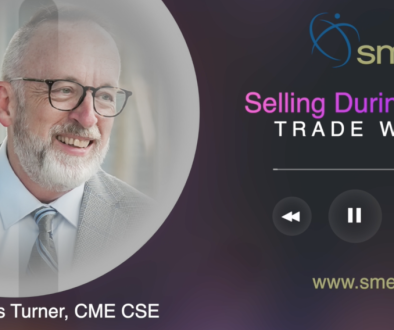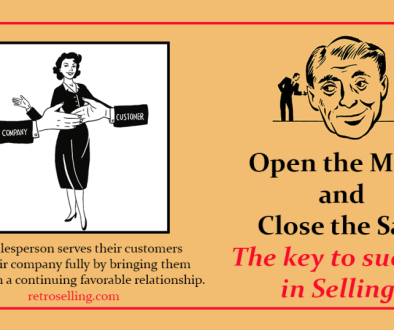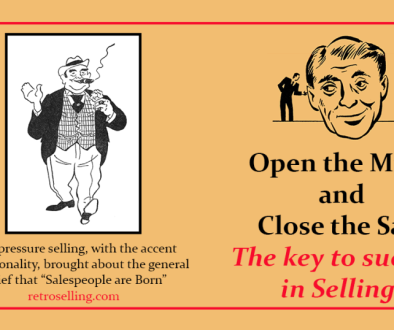Eight Ways to Increase Sales in the Trust Crisis
We are in a crisis, and it’s not the financial one. At the World Economic Forum in China, world leaders got it right when they declared that our biggest crisis is a lack of trust and confidence. We are in a trust crisis and few people really understand the bottom line implications.
Trust not only affects credit and government relations, but it also affects every relationship. And as we know, sales is all about relationships, and your primary currency is not money – it’s trust.
If you think trust is just a “soft skill,” consider the impact of Tiger Woods’ behavior off the golf course, which lost him millions of dollars in just a matter of weeks. One breach of trust at Penn State University could cost them $1 billion over the next decade. If you have a loan on your home, your mortgage payment is based on your credit score, which is essentially a trust score. The more the bank trusts you, the higher the score, the less you pay over the course of the loan. Trust impacts the bottom line.
Sales people can get caught up in seeking the newest sales tactic or closing tech¬nique, but without trust, they won’t even get in the door. Without trust, you lose sales. But when individuals acquire what I call the trust edge—the competitive advantage you gain when others have a confident belief in you to do what is right, deliver what is promised, and to be the same every time, in spite of circumstances—it shows in every relationship, and eventually is demonstrated by increased sales.
Trust is the unique commonality of the most successful sales people. Obtaining this level of trust isn’t easy, so if you are looking for a quick fix, don’t look to trust. Trust is like a forest—it takes a long time to grow, and is easily burned down with a just touch of carelessness. The good news is that we can build this fundamental key to success by building and maintaining eight pillars of trust.
1. Consistency: In every area of life, it’s the little things—done consistently—that make the big difference. If I am overweight, it is because I have eaten too many calories over time, not because I ate too much yesterday. It is the same in business. The little things done consistently make for increased sales and retention, and a higher level of trust. The great sales people consistently do the small, but most important things first. They make that call and write that thank you note. Do the little things, consistently.
2. Clarity: People trust the clear and mistrust or distrust the ambiguous. Be clear about your mission, purpose, expectations, and daily activities. When a manager is clear in expectations, she will likely get what she wants. When we are clear about priorities on a daily basis, we become productive and effective. When a sales person is clear about the benefits, people buy.
3. Compassion: Think beyond yourself, and never underestimate the power of sincerely caring about another person. People are often skeptical about whether a sales person really their best interests in mind. “Do unto others as you would have them do unto you” is not just an old saying—it is a bottom line truth. If followed, you will build trust.
4. Character: Do what is right over what is easy. Sales people that have built this pillar consistently did what needed to be done when it needed to be done whether they felt like doing it or not. It is the work of life to do what is right over what is easy.
5. Contribution: Few things build trust quicker than actual results. At the end of the day, people need to see outcomes. You can have compassion and character, but without the results you promised, people won’t trust you. Be a contributor that delivers real results.
6. Competency: Staying fresh, relevant and capable builds trust. The humble and teachable person keeps learning new ways of doing things, and stays current on ideas and trends. According to one study the key competency of new MBA’s is not a specific skill, but rather the ability to learn amidst chaos. Arrogance and a “Been-there-done-that” attitude prevent you from growing, and they compromise others’ confidence in you. There is always more to learn, so make a habit of reading, learning, and listening to fresh information.
7. Connection: People want to follow, buy from, and be around friends – and being friends is all about building a connection. Trust is all about relationships, and relationships are best built by establishing genuine connection. Ask questions, listen, and above all, show gratitude—it’s the primary trait of truly talented connectors. Grateful people are not entitled, they do not complain, and they do not gossip. Develop the trait of gratitude and you will be a magnet.
8. Commitment: Stick with it through adversity. People trusted General Patton, Martin Luther King Jr., Gandhi, Jesus and George Washington because they saw commitment and sacrifice for the greater good. Commitment builds trust.
Building trust with prospects and clients in this suspicious environment does not start with the economy, government, or even your organization. It starts with YOU—you can build these pillars and enjoy greater relationships, revenue and results.
David Horsager, MA, CSP, is an award-winning speaker, author, producer, and business strategist who has researched and spoken on the bottom-line impact of trust across four continents. He is the author of The Trust Edge: How Top Leaders Gain Faster Results, Deeper Relationships, and a Stronger Bottom Line which gives the framework for building trust in at work or at home. Get free resources and more at www.DavidHorsager.com and www.TheTrustEdge.com.




